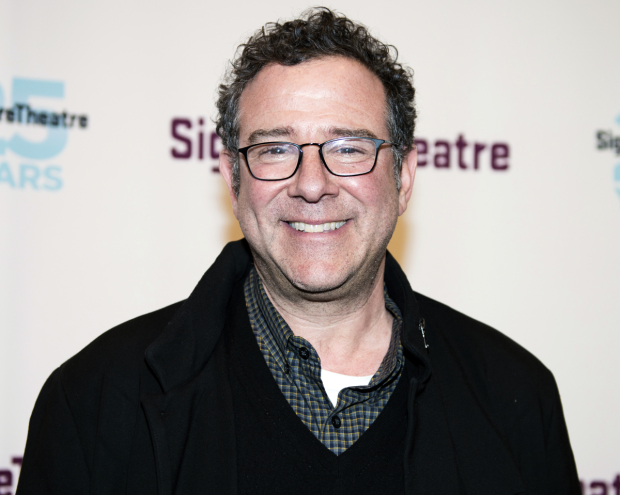20 Years After Rent, Michael Greif Reinvigorates the American Musical With Dear Evan Hansen
Greif’s latest production continues the trend that Jonathan Larson helped kick into high gear.
April 29 marks twenty years since Jonathan Larson's landmark musical Rent officially opened on Broadway, a fact ever-present in the mind of original director Michael Greif. "I have a twenty-one-year-old son and a seventeen-year-old daughter, and they help me remember," he says with a laugh.
Rent helped Broadway usher in a new era of storytelling, and Greif has similarly been at the forefront of that movement. Also the director of the Pulitzer Prize-winning rock tuner Next to Normal and the perspective-bending If/Then, Greif believes his shows "examine serious contemporary emotional issues through musical theater."
His latest project continues that trend, and opening, not incidentally, just two days after Rent made its legendary mark. Dear Evan Hansen, Benj Pasek, Justin Paul, and Steven Levenson's new musical at Second Stage Theatre, is propelling the genre even further, through its rock-and-roll score and its wrenching story of a young outsider who uses a community tragedy to his deceitful advantage.
It's a complicated story, much like the other tales that Greif has brought to life onstage.

(© Allison Stock)
What was it that attracted you to Dear Evan Hansen?
What I really love about this material is that there's so much to sing about and there's so much to feel deeply about. And yet, at the same time, there's always a tension and undercurrent, and there's a part of your mind that's engaged. The situation is so complicated and tenuous. The foundation on which it's built is so fragile, and remains so fragile that there's always something making you reexamine what you're feeling as you're feeling it. It's that complexity and the simultaneity of those things together that I think make this very unique.
Evan Hansen, played by Ben Platt, is a classic antihero whom we know we shouldn't feel bad for, and yet we feel an immense amount of sympathy for him? How did you, the writers, and Ben Platt manage to subvert expectations like that?
The writers have been so careful and so precise about how he becomes further and further ensnared. There's an extraordinary emotional credibility to how he digs himself deeper and deeper in. That's been very carefully examined over a lot of readings, and a workshop, and a production in order to get to this fine, fine place. And of course, Ben has been a part of every reading we've done of the show. His emotional truth meter has always been very helpful in guiding the writers, as well.

(© Matthew Murphy)
As a director, how do you pull such emotional nakedness and honesty out of your cast?
It's a lot about giving permission more than it is about pulling out. It's allowing the actors to work with each other and on each other, and a lot of those things that happen, happen because of what they're doing to one another. It's a matter of creating an environment in which there's permission to investigate those extreme places. Because the material is so good, it's so easy to give it everything. It doesn't ask you to ignore certain things or make up certain things. Everything you need to play is right there, in the extraordinary book and extraordinary music and lyrics.
Rent started a cultural conversation about what contemporary musical theater could be, and your other shows have furthered that discussion. What is it like to be there shepherding this kind of discussion firsthand?
I'm certainly happy that that conversation exists. I think that Rent, at a particular moment in the nineties, really blew the door open, or blew it open again, to be able to examine some very real emotional, contemporary issues. Certainly musicals had done that before, A Chorus Line and Hair, but I think Rent came along at a moment when we were all really ready and really needed for that musical theater door to be flung open again. I'm very happy that we can continue to examine serious contemporary emotional issues through musical theater.
What's your favorite memory of working on Rent?
I have many, of course. It was a really incredibly special day in our rehearsal period when…Jonathan went away for about two days of rehearsal, which was very unusual. He was very much a presence in all of our rehearsals. At some point…he went away because it was very clear that we still were in need of a really great duet for Maureen and Joanne.
He came in and first played "Take Me or Leave Me" for me and [musical director] Tim Weil, and then shared it with Fredi [Walker-Browne] and Idina [Menzel]. It's a great, great song, and it's the last song he wrote for Rent.
Hearing that song for the first time and getting to share it with the company and staging it in that same afternoon, I guess, certainly was among my greatest Rent memories. It was the very last song he wrote, and you can only imagine what revisions would have happened to that score and what other great musicals he would have written.








